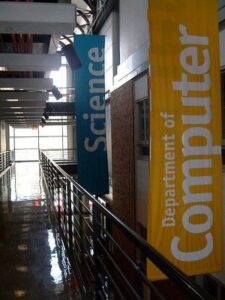A bill in the US House of Representatives would expand Pell Grants to short-term, workforce development grants. The legislation provides for a $160M expansion of the Pell Grant program to underwrite the change. Currently, only students who enroll in degree programs can receive Pell Grants.
The “expansion” proposed in the legislation is more of a shift, since the bill would exclude distribution of Pell Grants at institutions whose endowments have assets that exceed $500,000 per student. That provision would impact about 50 or so institutions, including Harvard, Yale, Stanford and other similarly situated institutions.
The problem with the premise of the bill is that Pell Grants go to students, not institutions. Students qualify for the Pell Grant based on substantial financial need. The bill would punish low-income students who attend top-tier institutions and expects the institution to make up the loss of the federal grants through internal scholarships and grants.
The American Association of Community Colleges supports the bill, ostensibly because it wants additional funding for short-term workforce development programs. This position runs headlong into two basic facts: first, there is very little evidence to show that short-term, non-credit training programs have any significant impact on the employability of the students who complete them. Second, there is a lot of evidence that shows that low-income students reap significant benefits from attending top-tier institutions.
It’s as though the bill’s Republican sponsors are saying to low-income students, “We’ll pay for you to learn how to drive a truck, but we’re not going to help you go to Harvard.”
Congress should fund workforce development separately
Analysts estimate that the legislation would negatively impact about 65,000 low-income students. Additionally, institutions say that it would be very difficult to admit low-income students if admissions must also be need-blind.
If funding workforce development opportunities is a priority for the Congress, nothing is stopping them from appropriating money to support them. They don’t have to eliminate Pell Grants for low-income students who have been offered admission at a top-tier institution.
It’s disappointing that the AACC supports this zero-sum approach to funding workforce development. This should not come at the expense of low-income students in institutions at the other end of the higher education spectrum. Further, Pell Grant eligibility is time-bound. Spending a semester of eligibility on a short-course workforce development program may prevent some participants from enrolling in a more beneficial degree-granting program later.
Before Congress gets too far afield on this, our legislators should ask for the elusive proof that workforce development programs can deliver a meaningful benefit to the participants.
Photo Credit: City of Greenville, North Carolina , via Flickr

















